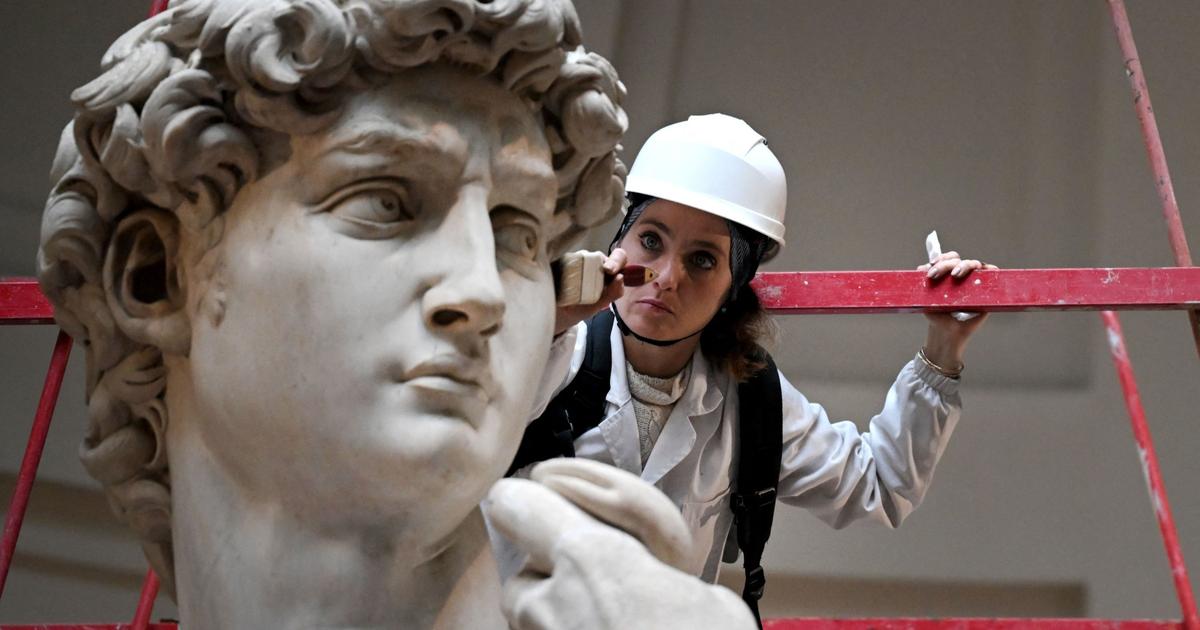In 2015, Verónica Vargas finished high school and decided to take courses in electricity, masonry, and plumbing.
Her incentive was to have her own home and her intention was to build it for herself.
Soon after, she won a little money in the lottery and was able to buy a piece of land with a house, which consisted of only one room, in a vulnerable neighborhood of Resistencia, in Chaco, Argentina.
With the knowledge she acquired in the courses, she was able to expand her house and build a wall around the patio.
Vargas contacted Vammosazoomar, an organization that seeks to reduce the gender gap in the construction sector and inspire thousands of women to prepare for a historically male occupation.
In Argentina, the construction sector is one of the most masculinized.
Only 4.6% of jobs are held by women, according to data from a report by UN Women, the National Ministry of Public Works and UNOPS.
Vargas is now dedicated to training other women in the sector.
In addition, the organization put her in contact with a construction company to start working and she is now in charge of a project.
She gets up every day at 4.30 in the morning, she takes the children to school and at seven she starts her workday.
She leaves at two in the afternoon and enjoys the afternoon with her children.
In the training space, they have a space for children, because the idea is that care responsibilities are not a barrier to taking the course.
“These trainings form a community among the women who participate.
A network is formed that transcends the contents of the course”, explains Maia Ganon, executive director of Vamosazoomar.
Another challenge is adapting the works to make them more comfortable spaces for women.
It is sought that there are separate bathrooms, appropriate clothing and schedules that allow care tasks to be compatible.
“This year, an agreement was made with the National University of the Northeast.
We put together the dry construction technical program, intended only for women.
Verónica is one of the teachers of that course, which began on March 28”, says Ganon.
The public sector has also decided to contribute to the momentum.
The Minister for Women, Gender and Diversity, Ayelén Mazzina, is advancing in the creation of the Construction Women Program, a federal and inter-ministerial policy that promotes training and greater employment opportunities in trades related to construction aimed at women and the LGBTI+ collective.
“To think about this policy and put it in a national framework, we have taken all the experiences of other provinces —such as La Rioja, the first to promote it—, listening to the colleagues who work in the territories, each one with their particular needs.
From the periphery to the center”, says Mazzina.
When the program was launched in La Rioja in 2021, 400 women enrolled, of which 60 took the course and only 20 graduated.
One of the causes of desertion had to do with the fact that they had nowhere to leave their children.
The minister highlights that many women were able to get out of situations of gender violence by strengthening their economic independence with a trade in construction.
“It is a key sector for the recovery of the economy, but it is also very masculinized.
We want women to be part of this recovery.
Who said that we cannot build, raise walls, houses, bridges? ”, she raises.
Before assuming her position in the National Government, Mazzina was in charge of the Women's Secretariat in San Luis and there she began to implement the program.
Since 2021, provinces such as La Rioja, San Luis, Salta, Catamarca and Chaco have been developing initiatives for the training and inclusion of women in trades such as masonry, sanitary and electrical installation, painting, dry construction, wood carpentry, costs , sales and administration, among others.
Precisely, in this new stage, the aim is to promote and expand these local experiences.
“We realized that there was a great need for training in trades that would allow them to build or solve problems in their homes.
When the program was launched in La Rioja in 2021, 400 women enrolled, of which 60 took the course and only 20 graduated.
One of the reasons for their desertion had to do with the fact that they had nowhere to leave their children.
In 2022, shorter courses were proposed and care spaces were contemplated.
In the second year, 80 construction companies completed the training, that is, four times more than the previous year”, says Mazzina.
From the Government it was proposed to start making a work table to make a federal public policy.
The Program will be implemented through coordination with universities and unions, with local governments, construction chambers and other National State programs.
Through coordinated work, the preparation of a Federal Register of Construction Companies is stipulated;
training development;
the establishment of agreements with local and provincial governments in order to build a bridge to employment;
and awareness campaigns around the distortion of masculinization in this sector.
“Construction is one of the most dynamic sectors of the economy and has been growing steadily since mid-2020. Today we have 450,000 registered jobs and, in a short time, we will reach 500,000.
Today only 4.6% are women”, emphasizes Mazzina.
Las Omas is a civil association that supports more than 400 women in vulnerable situations, in many cases affected by gender violence, in the suburban area of Chacra de la Merced, Córdoba city.
There, training is offered for the development of productive enterprises to promote the economic autonomy of women.
With the aim of facilitating access to formal work and self-employment, VAMOSAZOOMAR establishes networks with the different actors in the sector.
Image provided by the organization.
Augustine Aguado
Engineering Without Borders approached this organization to carry out a joint project.
They proposed to build a space-workshop with the relevant sanitary facilities, so that they would have their own space where they could carry out training on different topics.
The particularity of the project is that a crew of five women was assembled to carry out the construction.
Paula Ali is one of the members of that team.
“In December and January we assembled the walls with plates and now we are putting up the roof.
It remains to get to work inside with the placement of the floor, the facilities and dry construction.
We estimate that the work should be completed by July, ”she estimates.
Sofía Sánchez is a reference for Engineering Without Borders and coordinator of this project.
“In October 2021 we applied for financing to assemble the crew.
We wanted the women of the area to be able to participate in a training process and work on the site.
The financing allowed the girls to have an economic scholarship.
The five who are participating at this moment are mothers.
They have the commitment to participate in the construction two days a week from 8 in the morning to 1 in the afternoon.
At that time, they cut off to look for their children, ”she says.
Ali says that her motivation to train in construction has to do with having the knowledge to use in her home tomorrow.
"I was already able to help my father, who is a bricklayer, and improve the floor of my house," she says.
In the Saladero de Ing. White neighborhood, Bahía Blanca, Buenos Aires province, Habitat for Humanity Argentina carried out, together with the White Works Cooperative, a works project to establish 173 home connections to the running water network, 2,400 meters of sidewalk and 100 trees.
With funding from the Secretary for Socio-Urban Integration of the Ministry of Social Development of the Nation, it began to be executed in December 2021 and is already finished.
“I am a neighbor of the neighborhood, I have lived here for 26 years and we had problems with water for a long time,” says Tamara Parra, who works as a bricklayer in the cooperative.
“What I like most about my job is that I give women more confidence that they can work in this sector.
It fills me with pride that we can be inside a work,” says Parra.
There are 26 members in the cooperative and half are women.
“We work alongside the men,” she says.
And she adds: “The woman does not always have to go clean, take care of grandparents or work as a babysitter.
We set the example that it is not too late to learn”.
You can follow PLANETA FUTURO on
,
and
, and subscribe
here
to our 'newsletter'
.















